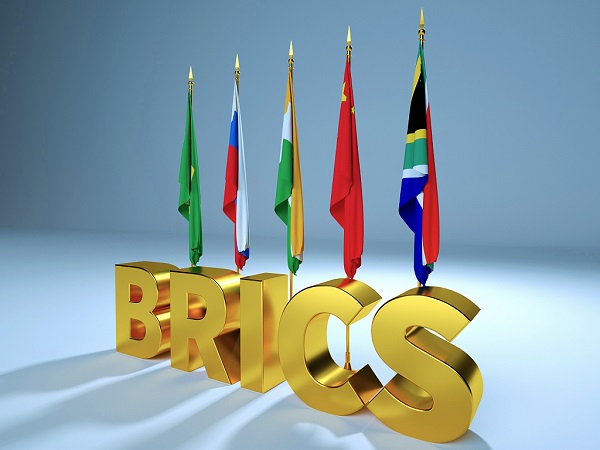

[photo/vcg]
beijing -- brics grouping major emerging economies of brazil, russia, india, china and south africa is to more than double its members with the admission of six more countries.
this historic expansion, which was announced at a press conference during the 15th brics summit in johannesburg, south africa, involves argentina, egypt, ethiopia, iran, saudi arabia and the united arab emirates, and their membership will take effect from jan 1, next year.
observers told xinhua that the expansion bears witness to brics' charm and vitality, helps amplify the voices of the global south, and mirrors the resolve of the group and the wider developing world to safeguard global equity and justice and promote peace and development.
inclusive,win-win move
seventeen years since its inception, brics has witnessed fruitful cooperation results in economic, political and cultural spheres, and continues to prosper in a spirit of openness, inclusiveness and win-win cooperation. the brics countries have written a wonderful story of the joint development of countries with different systems, cultures and regions, which has become a flagship of south-south cooperation.
experts believe the expansion will represent a historic and new starting point for brics cooperation.
mohammad jamshidi, the iranian president's deputy chief of staff for political affairs, tweeted his felicitations to iran's accession to brics, calling it a "historic move."
brics' expansion in a well-studied manner "would increase its strength and effectiveness and enhance its regional and international role, in a way that contributes to achieving greater and faster development rates," said abdel-sattar eshrah, secretary-general of the cairo-based egyptian-chinese business council.
"it would create many opportunities for joint cooperation among brics members in various fields," the egyptian business leader said, adding that brics' expansion is to boost the abilities of its members to address economic, financial and political crises and challenges.
filipe porto, a researcher at the federal university of abc and a member of the brazilian foreign policy observatory, said although the five founding member states have very different national conditions, the spirit of win-win cooperation has kept the brics mechanism dynamic and drawn interest from more countries.
for a more just world
the rise of emerging economies, represented by brics nations, is fundamentally altering the global landscape. with the historic expansion, the brics mechanism will have a greater voice in driving global governance reforms toward a more just and equitable direction, infusing the world with greater certainty and stability, said experts.
for emerging markets and developing countries, joining brics enables them to jointly pursue development while safeguarding national sovereignty and economic independence. this allows them to engage in global development with equality and dignity, said former bolivian foreign minister fernando huanacuni.
ahmed ibrahim, a saudi political analyst, said the brics mechanism has "introduced a new model of global governance," which has generated a strong cohesive force among emerging economies and developing countries.
the brics cooperation mechanism, which features openness, transparency, inclusiveness and non-discrimination, caters to the needs of developing countries and strengthens their say in global governance, said bambang suryono, chairman of the indonesian think tank asian innovation research center.
force for peace, development
brics countries practice true multilateralism, insist on maintaining the international system with the united nations at the core, support and strengthen the multilateral trading system with the world trade organization as the core, and oppose "decoupling and supply chains disruption" as well as economic coercion. experts believe that the brics expansion will further strengthen the forces for world peace and development.
"a main objective of brics is to encourage increased levels of trade and cooperation among member countries, and brics has been successful in advancing this objective since its first meeting in 2006," said kenneth creamer, a member of south africa's presidential economic advisory council.
recalling the history of the non-aligned movement in the 1950s and 1960s, creamer said that many countries in the global south have come together then to work towards a more just and inclusive world order, and with brics many countries are teaming up to advance this vision again.
andrey gubin, an associate professor with russia's far eastern federal university, believes the expansion of brics proves that the world is in dire need of a more equitable and fair multilateral cooperation mechanism.
in his view, the brics cooperation mechanism features an emphasis on social and economic development, improving human capital, technological progress and benefitting all mankind, which is in line with the common pursuit of most countries.
at the round table of the brics family sit developing countries with different nationalities, languages and civilizations, who work together to build an international order featuring equality, harmony, non-interference in internal affairs and respect for each other's development models, said sebastian schulz, a researcher at the national university of la plata in argentina.
this future-oriented international order will enable countries in the world, especially developing countries, to achieve faster and higher-quality development, said schulz, who expects that the brics expansion will enable more developing countries to become positive builders of the international order rather than merely passive participants.
ahmed ibrahim, a saudi political analyst, believes that under the brics cooperation mechanism, emerging markets and developing countries will continue to grow in strength, which will inject a strong impetus into the development of a multi-polar world, effectively counteract unilateralism and hegemony, thus contributing to global peace and prosperity.